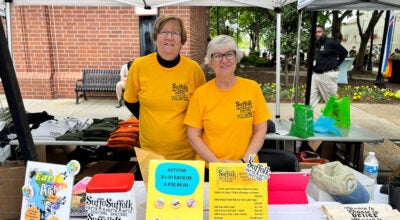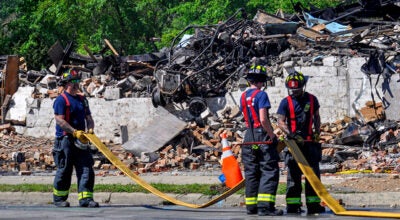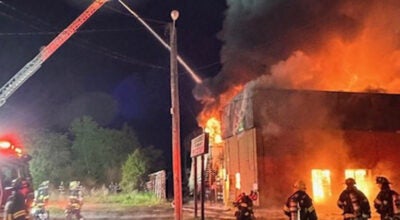Students see ‘grown up’ math and science
Published 7:34 pm Saturday, April 24, 2010
It was not a regular school day for Skyler Rozell, a student at Forest Glen Middle School.
Instead of math class, Skyler found himself in the driver’s seat and behind the wheel of a Joint Light Tactical Vehicle — a utility vehicle used by the U.S. Army and Marines — driving through a hostile area with a fleet of other JLTVs on their way to base.
Skyler and approximately 80 of his classmates visited Lockheed Martin’s Center for Innovation Friday as part of Lockheed’s Suffolk Public School Mentoring project.
“Kids are able to see what they can use their math and science skills to do later in life,” said Lockheed employee and Forest Glen mentor Robert Moore. “We want to bring them here to see the Center for Innovation so they can get a visualization and understanding that technology here is moving forward. We need students like them to continue the innovative process.”
Students were able to sit in the Command and Control Lab, where experiments are conducted year-round, see how the Lockheed Martin Incident Management Scenario can train emergency responders to deal with catastrophic events and experience firsthand what its like to an fly F-16 and helicopter and drive tactical vehicles and boats through simulators.
“Last year, kids were talking about their trip for four weeks afterwards,” seventh grade math teacher Kris Gillgren said. “It creates a buzz. They walked out of here with their eyes and their minds wide open with possibilities.”
The mentoring project began in 2008 after representatives from the company approached the school system with the idea. Lockheed employees began volunteering their time and talent during the 2008-09 school year in three math classes, which has since grown to four math classes and one science class.
Their work with the school won them Suffolk Public School Partnership of the Year.
More important, however, their work with the students has given math and science a tangible meaning — and in some cases made a marked difference for the students and their report cards.
“I had one student who was not doing well at all in math,” Gillgren said. “But he came here last year for the field trip and saw what he might be able to do one day with those skills, and it turned him around completely. He started getting A’s.”
Mentors visit the math classes every other week and the science class once a week. During their visits, mentors focus on integrating what the students are learning in class with Lockheed inspired projects or help them review test material.
At the end of the year, students visit the Center for Innovation, located near the United States Joint Forces Command Center, for an inside look at what math and science looks like all grown-up.
“It’s key for kids to see why they’re doing what we’re making them do in the classroom, and how it’ll impact their lives late,” Gillgren said.






